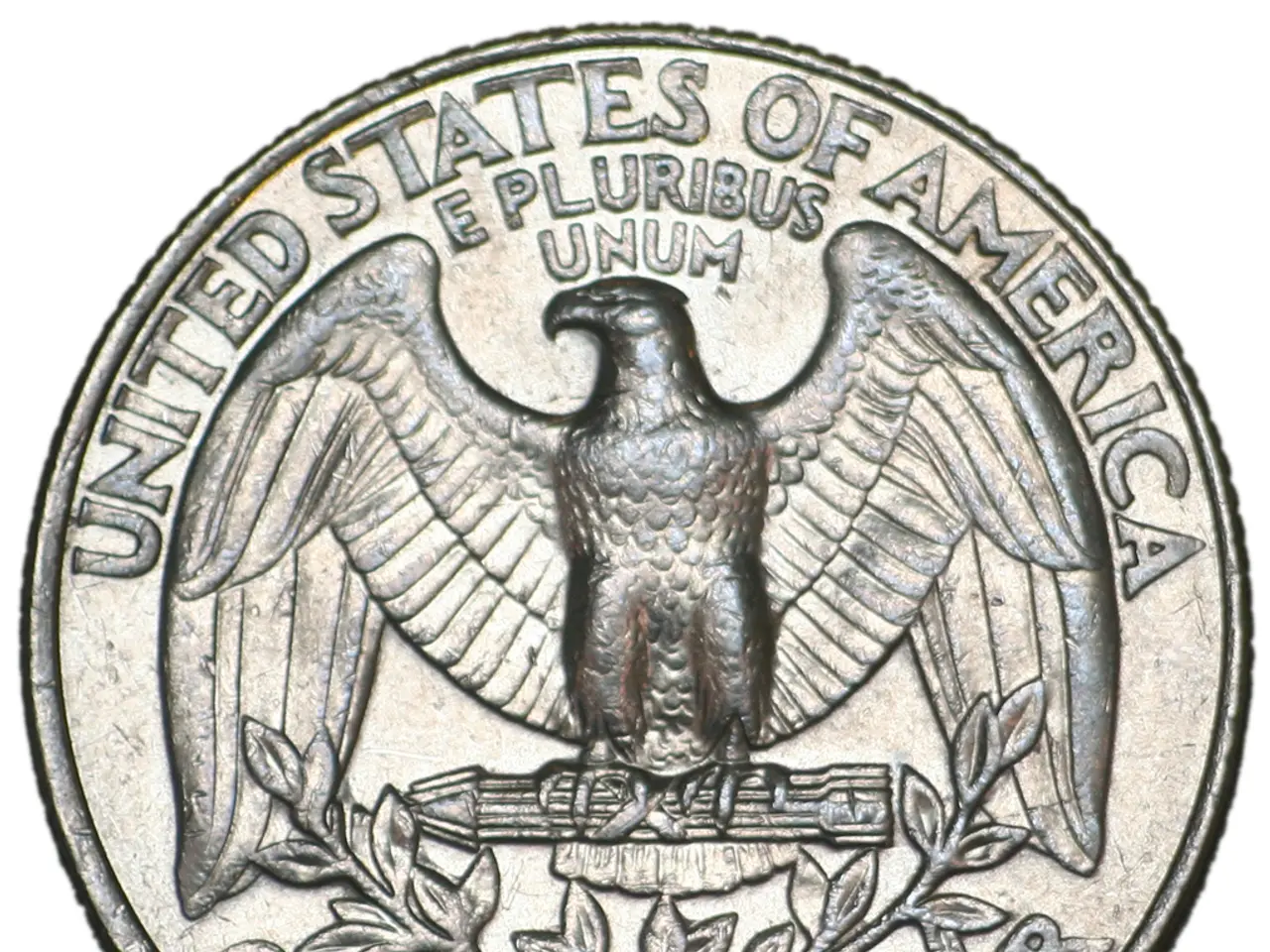Slowed Ghanaian inflation reaches a four-year low, intensifying rate reduction possibilities
Ghanaian Cedi Strengthens as Bank of Ghana Contemplates Further Interest Rate Cuts
In a move that could boost economic growth, the Bank of Ghana's Monetary Policy Committee (MPC) is considering another reduction in interest rates at its upcoming meeting on September 17th. This decision comes on the back of a 300 basis-points cut to 25% in July, as announced by the Governor, Johnson Asiama.
Ghana's currency, the cedi, has been on a positive trajectory this year, gaining 23% against the US dollar. This impressive gain is largely attributed to rising prices of key exports such as cocoa and gold.
The latest data indicates that the disinflation trend is continuing, with prices decreasing by 1.3% month-on-month in August. This decline is reflected in both food and non-food inflation rates. Food inflation eased to 14.8% in August, down from 15.1% the previous month, while non-food inflation dropped to 8.7% from 9.5%.
As a result, annual inflation in Ghana decreased to 11.5% in August, a decrease from 12.1% in July. This is a positive step towards the central bank's target of keeping inflation within the 6-10% range by the end of the year.
Governor Asiama has suggested that the MPC may reduce the policy rate further if the disinflation trend continues. However, the committee will continue to assess incoming data before making a decision.
On Wednesday, the cedi traded at 11.95 per dollar, reflecting the positive momentum in the currency's value this year. The reduction in interest rates and the strengthening cedi could encourage investment in Ghana, potentially boosting economic growth.
As the MPC prepares for its September meeting, businesses and investors are eagerly awaiting the decision on interest rates. A further cut could provide a much-needed stimulus to the Ghanaian economy, helping it navigate through the challenges posed by the global economic downturn.
Read also:
- Peptide YY (PYY): Exploring its Role in Appetite Suppression, Intestinal Health, and Cognitive Links
- Toddler Health: Rotavirus Signs, Origins, and Potential Complications
- Digestive issues and heart discomfort: Root causes and associated health conditions
- House Infernos: Deadly Hazards Surpassing the Flames








